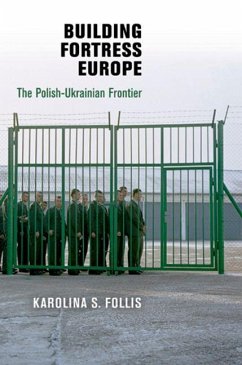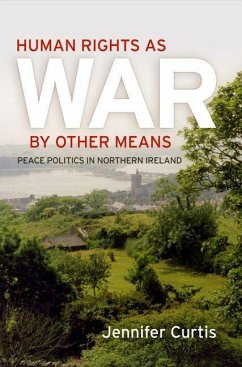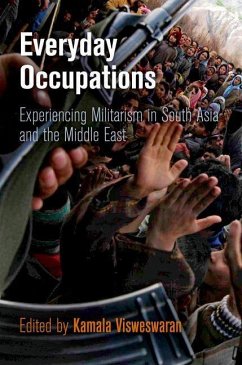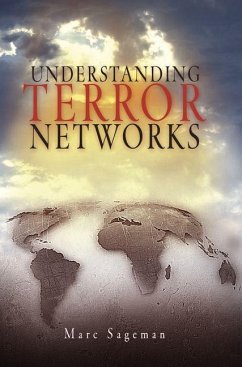
Crimes of Peace (eBook, ePUB)
Mediterranean Migrations at the World's Deadliest Border

PAYBACK Punkte
11 °P sammeln!
Among the world's hotly contested, obsessively controlled, and often dangerous borders, none is deadlier than the Mediterranean Sea. Since 2000, at least 25,000 people have lost their lives attempting to reach Italy and the rest of Europe, most by drowning in the Mediterranean. Every day, unauthorized migrants and refugees bound for Europe put their lives in the hands of maritime smugglers, while fishermen, diplomats, priests, bureaucrats, armed forces sailors, and hesitant bystanders waver between indifference and intervention-with harrowing results. In Crimes of Peace, Maurizio Albahari inve...
Among the world's hotly contested, obsessively controlled, and often dangerous borders, none is deadlier than the Mediterranean Sea. Since 2000, at least 25,000 people have lost their lives attempting to reach Italy and the rest of Europe, most by drowning in the Mediterranean. Every day, unauthorized migrants and refugees bound for Europe put their lives in the hands of maritime smugglers, while fishermen, diplomats, priests, bureaucrats, armed forces sailors, and hesitant bystanders waver between indifference and intervention-with harrowing results. In Crimes of Peace, Maurizio Albahari investigates why the Mediterranean Sea is the world's deadliest border, and what alternatives could improve this state of affairs. He also examines the dismal conditions of migrants in transit and the institutional framework in which they move or are physically confined. Drawing on his intimate knowledge of places, people, and European politics, Albahari supplements fieldwork in coastal southern Italy and neighboring Mediterranean locales with a meticulous documentary investigation, transforming abstract statistics into names and narratives that place the responsibility for the Mediterranean migration crisis in the very heart of liberal democracy. Global fault lines are scrutinized: between Europe, Africa, and the Middle East; military and humanitarian governance; detention and hospitality; transnational crime and statecraft; the universal law of the sea and the thresholds of a globalized yet parochial world. Crimes of Peace illuminates crucial questions of sovereignty and rights: for migrants trying to enter Europe along the Mediterranean shore, the answers are a matter of life or death.
Dieser Download kann aus rechtlichen Gründen nur mit Rechnungsadresse in A, D ausgeliefert werden.













